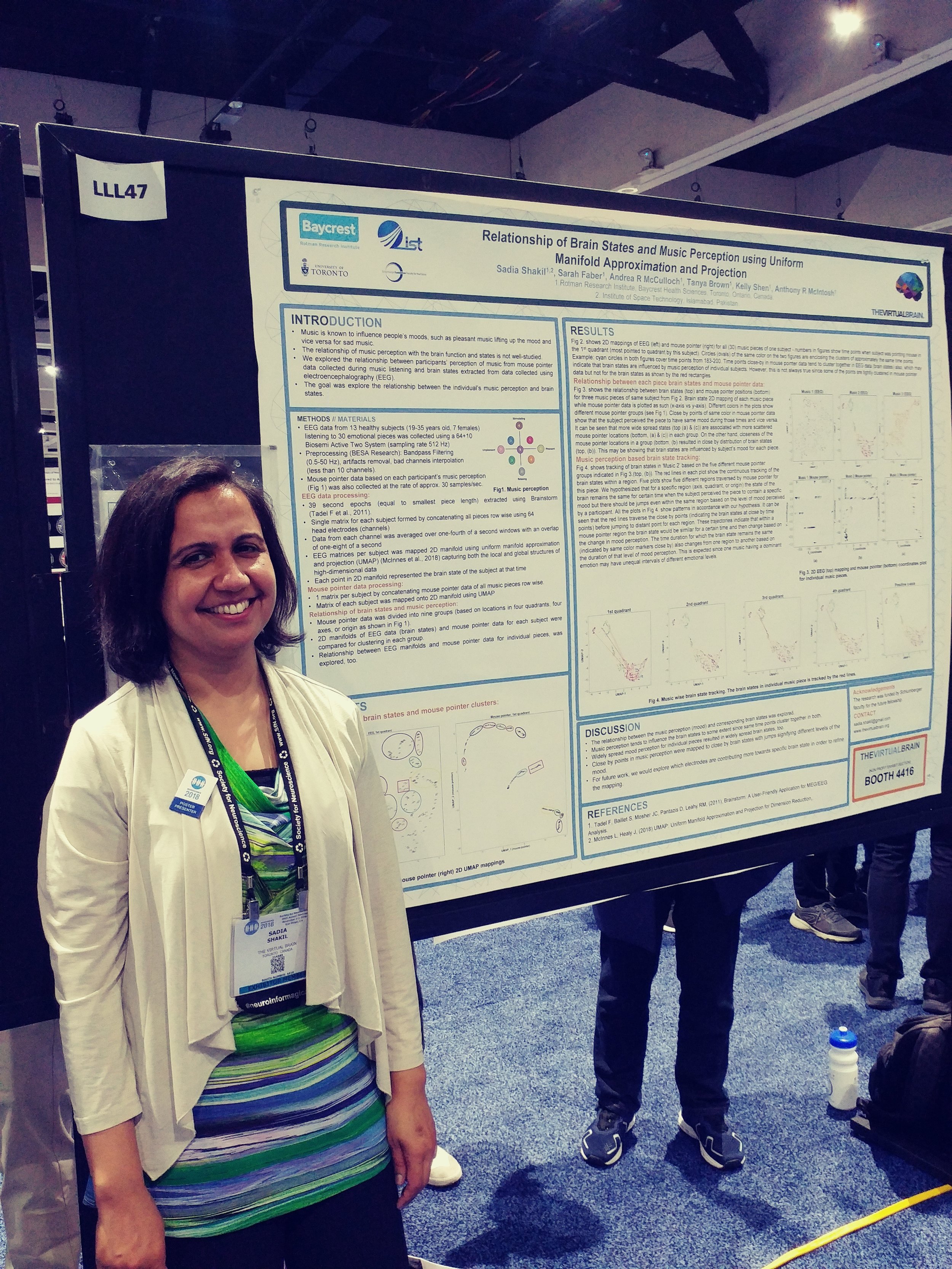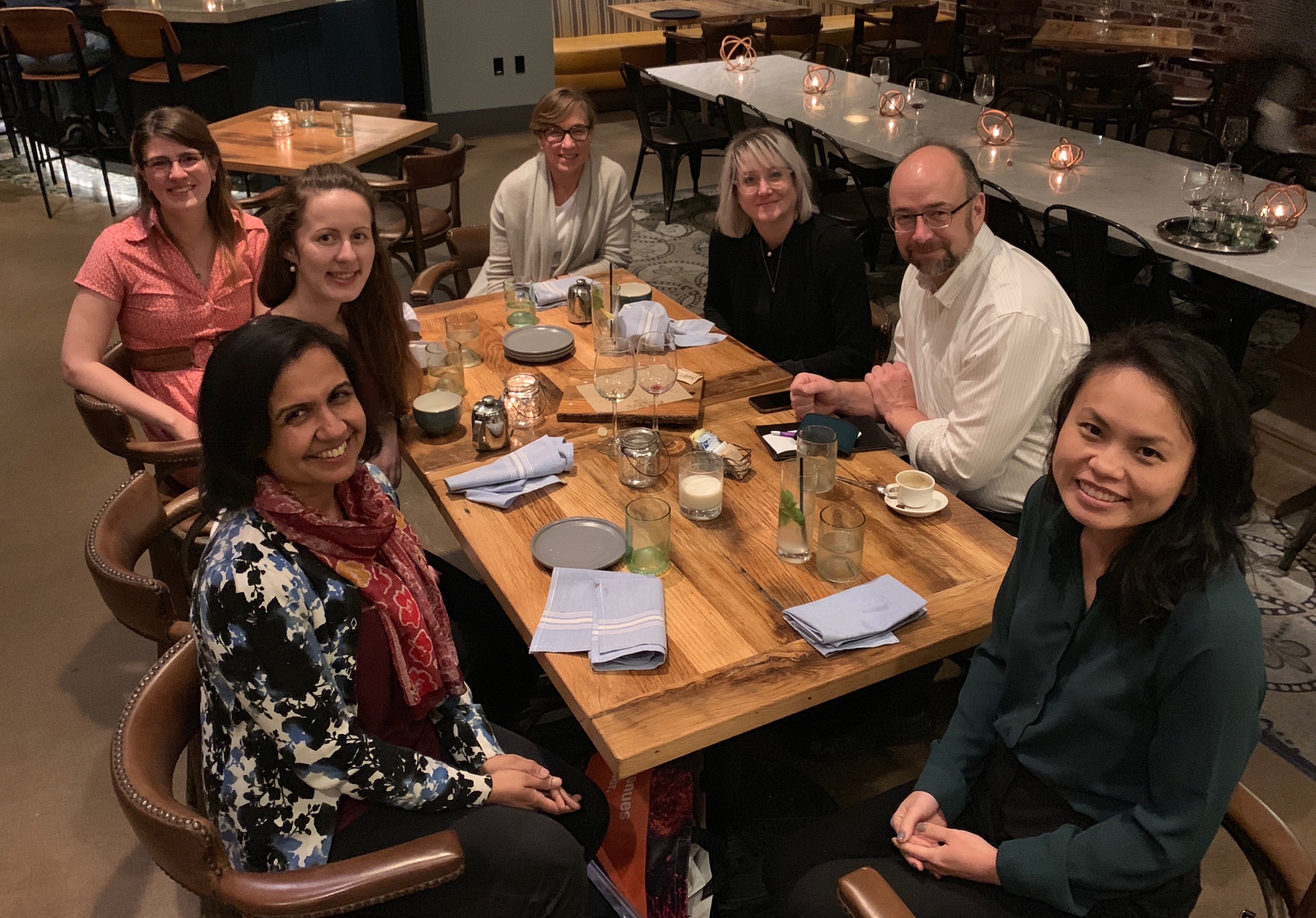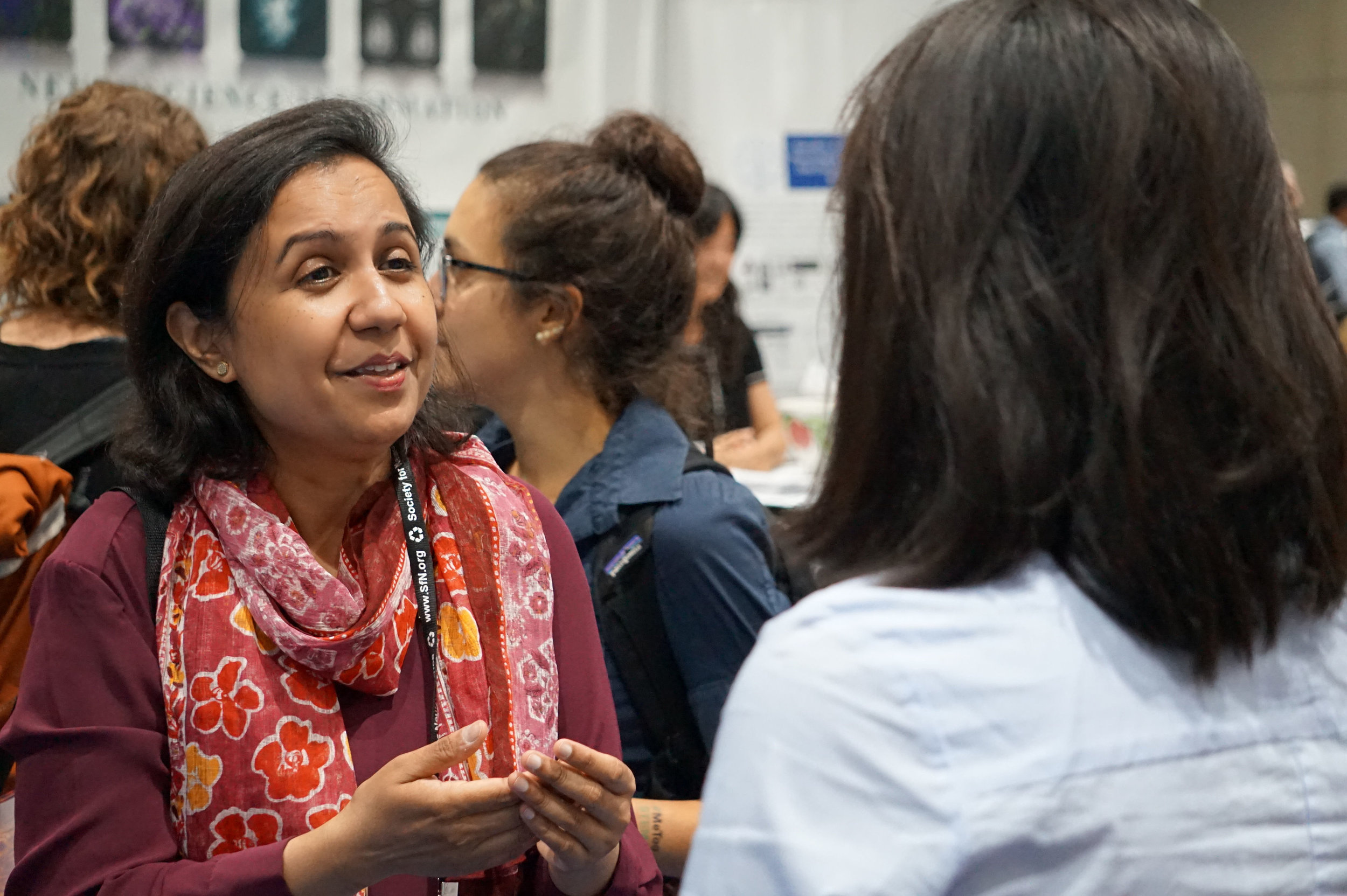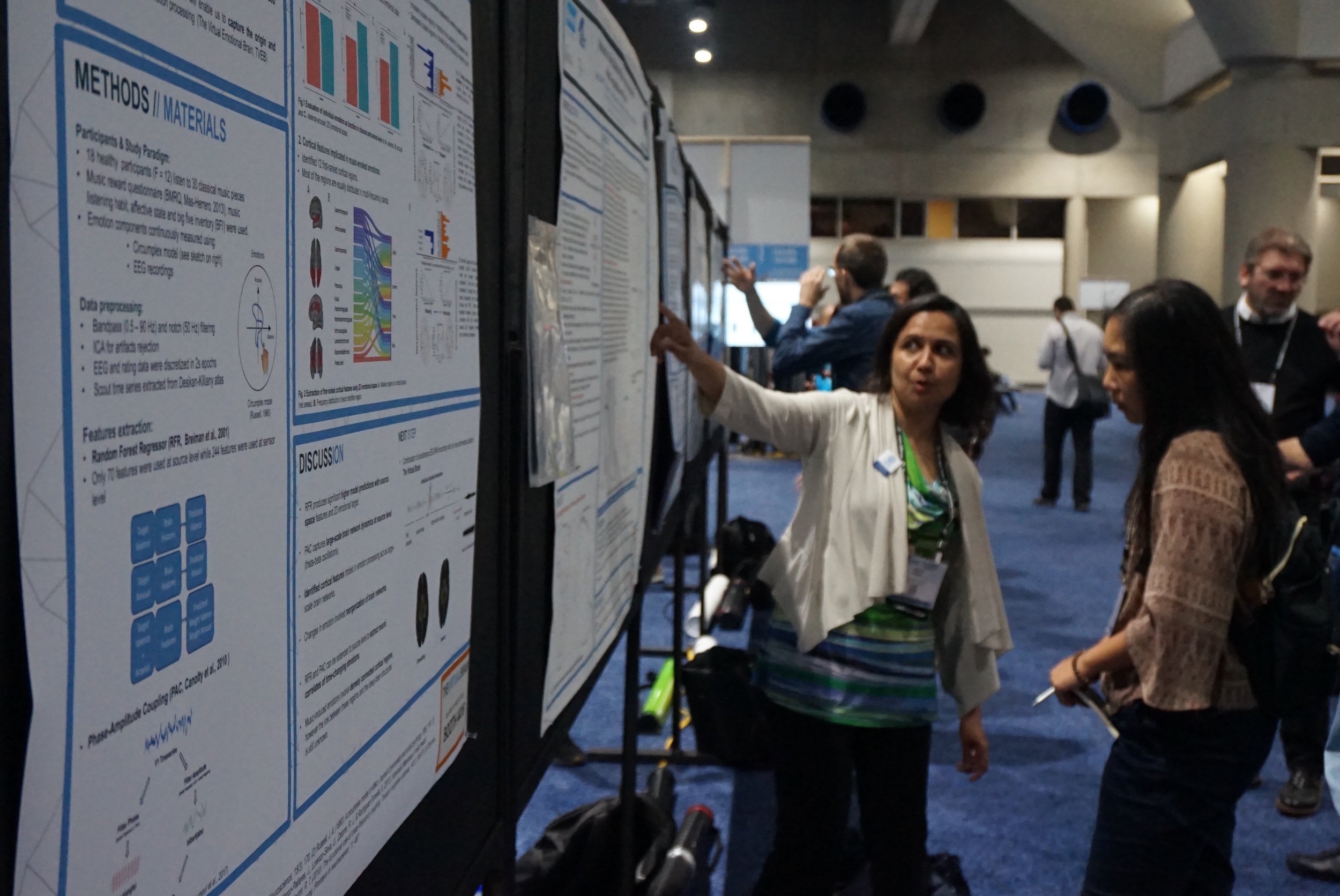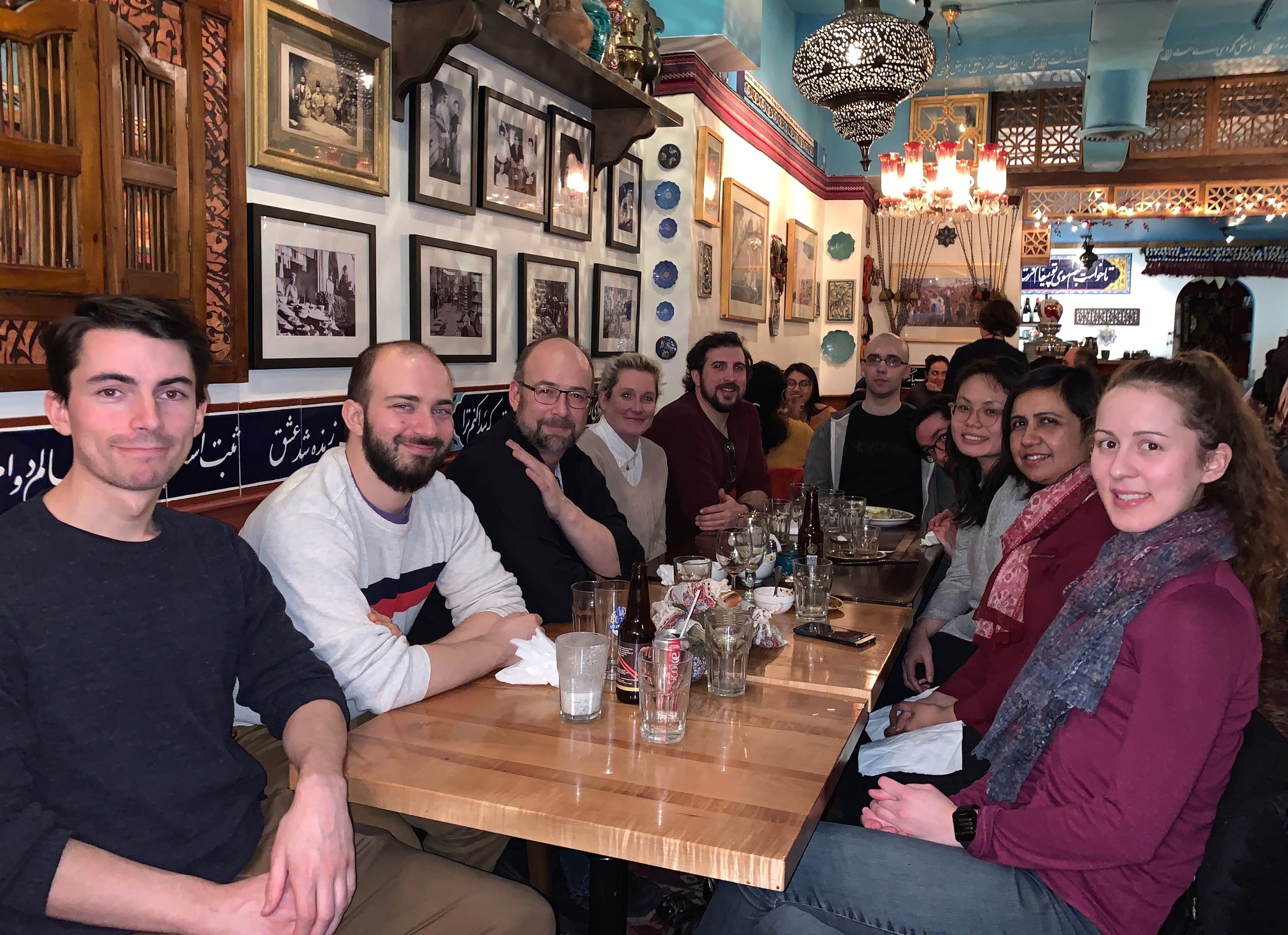My Year with the McIntosh Lab
BY SADIA SHAKIL
A few days ago, I finished my one-year postdoc with the McIntosh lab. I spent just one year in the lab but my affiliation with it started in October 2016 when I contacted Randy for the first time, since I wanted to apply for Schlumberger Faculty for the Future Foundation Fellowship for my postdoc. My main motivation for contacting Randy was his work on ‘manifold learning’ and ‘the virtual brain (TVB)’, which could assist me in understanding and modeling individual brain functions. From the beginning, Randy and his lab were very welcoming and helpful in providing me with an environment that was conducive to learning. Though I could not finish any of my projects (research never has an end in any case!), but my learning curve during this time grew quite rapidly. However, this learning took place through very strenuous paths since these domains were very different from my previous research background. I still remember when Randy started sending me relevant papers/reading-material after I received the fellowship award in April 2017 while I was waiting for my Canadian visa. The literature was very hard for me to understand and most of the time studies did not make much sense to me. At that time, I started to doubt my decision and this uncertainty was intensified when Randy mentioned working with data collected during music listening. The reason being the fact that even though I like listening to music, I did not have (in fact still do not have) the ability to differentiate between various forms/genres of music. My relationship with music (beyond listening) ended with my failed attempts at singing during my high school years and later on with my failed attempts at learning to play piano during my college years. I somehow made up my mind that being too logical (and a lover of mathematics) I was incapable of appreciating and comprehending any form of art, including music. As a result, I was quite nervous and anxious when I arrived Toronto in February 2018 to join McIntosh lab, since I felt that I did not have enough background to understand the data and/or perform the research. However, my fears turned out to be baseless and I had one of the most eventful years of my life during my stay with the lab.
My learning started from the very first lab meeting in which all the lab members briefly presented their research and provided me with a starting point. I visited all of them, one by one, in the next few days to explore more about their research and kept on bothering them with my annoying queries from time to time afterwards. At the same time, I started to discuss ideas with Randy and my major learning curve went up from that point onwards. I found Randy to be fearless in exploring entirely new approaches to our problem of relating brain and behavior using the music data. We started with my known domains of dimensionality reduction like PCA and tSNE and gradually moved towards areas unknown to me such as UMAP, graph theory, PLS, and algebraic topology. I believe that my engineering background has always led me to look at brain data differently (from anyone of the neuroscience background) and this, combined with Randy’s ideas, directed us to explore our data in unique and unusual manners. As a result, we could visually relate the underlying structures in both the brain and behavior data by extracting the topologies using dimensionality reduction. Consequently, our posters attracted a lot of attention at the ‘Resting-state’ and ‘Society for Neuroscience’ conferences. We are still working to quantify these results and hope to do so in the near future by exploring more unchartered territories. We also plan to have collaborations in the future on the old and new projects.
In addition to learning new algorithms/methods during the last one year, I had the chance to meet wonderful people through the McIntosh lab. My colleagues at the lab were warm and approachable. Consequently, I never felt hesitant in approaching them for any kind of issues or problems. I had many constructive discussions with them covering technical and non-technical topics. These discussions not only enriched my technical knowledge but also provided me with the information about Canadian culture, history, and society. I ended up making some good friends and created valuable memories to cherish for life. I also got the chance of experiencing the famous Canadian winter during the last year. Being from a city with average summer temperatures around 40oC and lowest temperatures of -2oC, this was a lifetime experience for me. Now I know about all forms of rain, ice, and snow, which is a learning for me in itself.
A few days before the end of my postdoc a friend asked me ‘If you were given the chance to have the postdoc year again would you still wish to come to McIntosh lab’ and my answer was ‘Yes, absolutely!’. This year added so much to my life experience that I would never wish to miss it.
Twitter: @SadiaShakil4
Sadia on Research Gate
